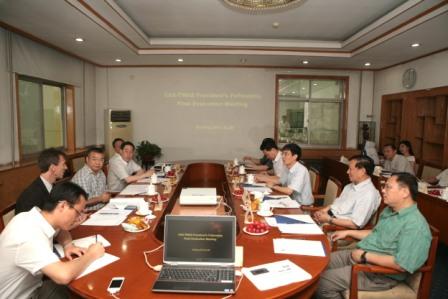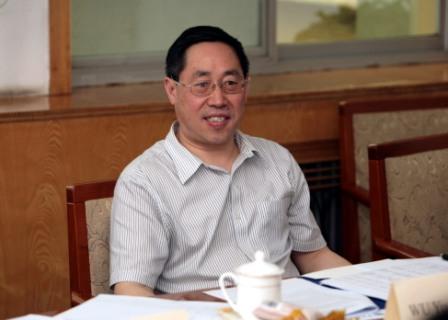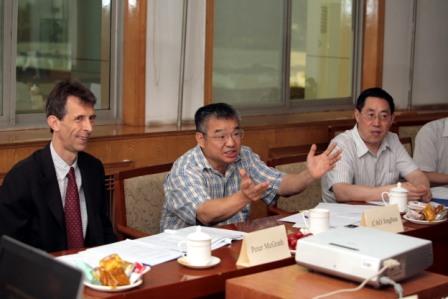
At the evaluation meeting

Wu Yueliang chaired the evaluation meeting

Opening speech by Cao Jinghua
On June 28, the final evaluation meeting of the CAS-TWAS President's Fellowship Programme was held at the Yuquanlu campus, UCAS. It was attended by experts and professors from the Chinese Academy of Sciences (CAS), the Third World Academy of Sciences (TWAS), UCAS and Technology of China (USTC). Chen Chusheng, Vice President of USTC, chaired the meeting.
Cao Jinghua, Vice-Director General of the Bureau of International Cooperation, CAS, extended a warm welcome to the TWAS officers and to the experts. He explained that CAS has over one hundred institutes and two universities, UCAS and USTC. The cooperation of all the institutes and universities facilitates international student education at CAS. The CAS-TWAS President's Fellowship Programme increases the internationalization of CAS education.
Prof. Wu Yueliang, Academician and Executive Vice President of UCAS, chaired the evaluation meeting. Experts from mathematics and physics, chemistry, life sciences, earth sciences and information science and technology selected 140 students from 29 countries to receive the fellowship.
This year, a total of 603 applicants from 42 countries and regions of Asia, Europe, Africa, North America, and South America applied for this programme, involving 70 CAS institutes. The preliminary evaluation meetings were held at UCAS on May 23 and June 19.
According to a new agreement between the Chinese Academy of Sciences (CAS) and TWAS, the academy of sciences for the developing world, up to 140 students/scholars per year from the developing world will be sponsored to travel to China for up to four years’ of PhD study and research. The CAS-TWAS President’s Fellowship Programme provides students/scholars from developing countries with the opportunity to pursue PhDs at UCAS, USTC and/or institutes of CAS around China.
(Written by Hu Menglin, Xia Yu)